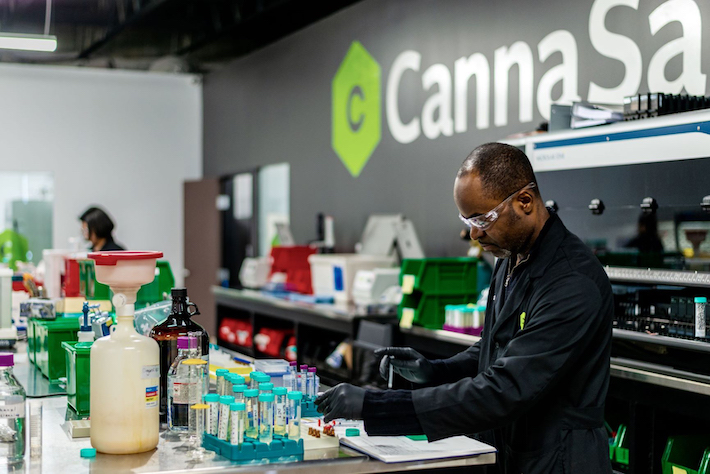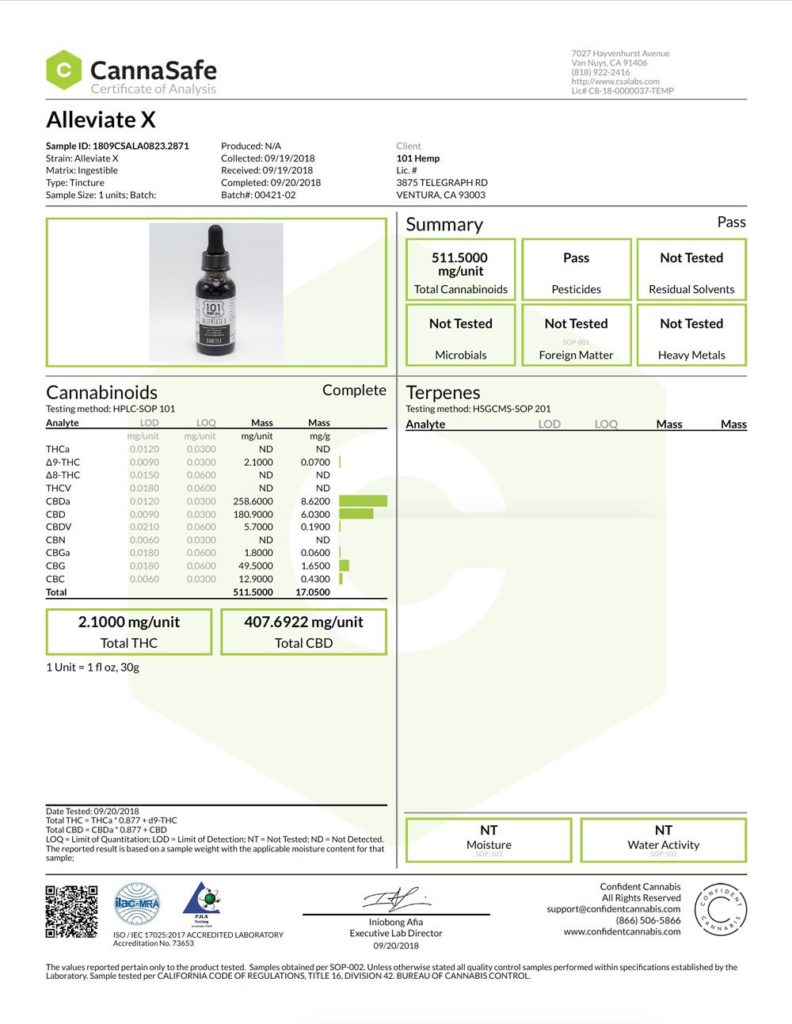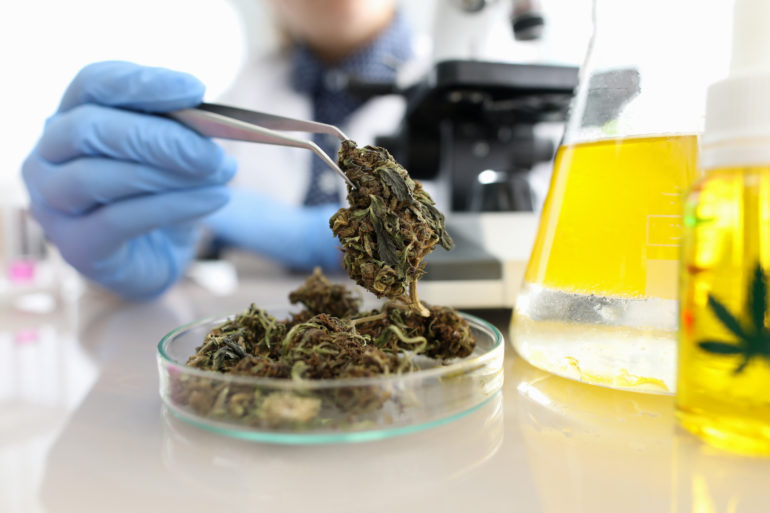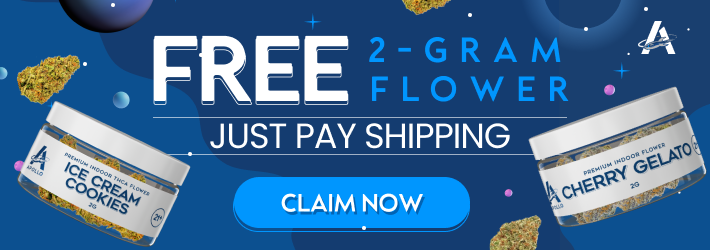As CBD continues to take over the mainstream, so do the number of new companies and their endless stream of products. This, of course, is an amazing thing in the grand scheme of things. You have so much more choice.
Unfortunately, there’s a dark side to this as well. CBD’s power to change people’s lives has been tarnished by a small (but significant) number of unscrupulous, immoral, and, frankly, shitty companies looking to make a quick buck off of the trend.
This has resulted in equally shitty products being pumped through the market ready to be purchased by naive consumers who think a CBD stamp on a label is enough for it to be legitimate. Unfortunately, this isn’t the case. There’s so much more to buying CBD products and third-party testing is the main thing to look out for.
The importance of third-party testing:
- The CBD industry is unregulated and has attracted shit, immoral companies producing awful and harmful products — third-party testing provides a layer of protection
- Laboratories test CBD products to make sure they’re legitimate, legal, and above board
- Once the CBD product(s) are tested, the laboratory will issue a Certificate of Analysis (COA)
- A COA shows five main things: Cannabinoid Profile, Terpene Profile, residual solvent testing, heavy metal testing, and pesticide testing
- Don’t purchase any CBD products if third-party tests are not available on the company’s website
What is third-party testing?

Third-party testing (in the CBD industry or otherwise) is defined as a private party or entity outside of the company’s network conducting unbiased, impartial examination of its product(s).
In other words, they test the products to make sure they’re not shit (and a few other things too, which we’ll come to later on).
Why third-party lab testing is important
Third-party testing is so important because the CBD industry is (for the most part) unregulated, which has attracted a whole heap of shitty, terrible, unethical, and unscrupulous companies looking to capitalize on CBD’s newfound fame.
Some companies out there in the big wide CBD world are peddling products with high levels of contaminants, above the legal limit of THC and lower-than-labeled CBD content.
This, unfortunately, has led many customers to spend their hard-earned cash on bogus and potentially harmful products. This, of course, has to stop — now.
Thankfully, third-party testing provides a nice layer of protection for you as a customer. You get to see exactly what’s in the product you’re purchasing. It also shows the legitimacy and integrity of the company you’re purchasing from.
What is a Certificate of Analysis (COA)?

Once a company has tested its products, a document called a Certificate of Analysis (COA) will be issued.
The most common test laboratories will do is the Cannabinoid Profile, which shows which cannabinoids are in the product and how much of each cannabinoid is present (usually as a percentage and as an mg/g).
Other lab tests include:
- Terpene Profile
- Microbiol
- Residual solvents and heavy metals
- Pesticides
Some companies will only have the Cannabinoid Profile test, whilst others will have some (or all) of them.
I would personally choose a company that has a higher number of tests as opposed to lower.
What do third-party laboratories test for?
Cannabinoid Profile
If you look at a full COA, the first thing you’ll see is the Cannabinoid Profile, which shows how many cannabinoids there are and how much of each cannabinoid is present in the product.
This is incredibly important, especially for evaluating how much THC is in the product and how much of it you’ll be consuming (if any).
Types of cannabinoids you’ll see on a Cannabinoid Profile:
Terpene Profile
Similar to the Cannabinoid Profile, a Terpene Profile shows how many terpenes there are and how much of each terpene is in the product (usually as a percentage).
You won’t always find Terpene Profiles in COAs. The number of terpenes won’t affect the product’s legality, nor will it negatively affect you once consumed. In fact, terpenes will more than likely enhance your product rather than diminish it.
Terpene Profiles also let you know how the product will ultimately taste and smell, which is a good point of interest.
Types of terpenes you’ll see on a Terpene Profile:
- Myrcene
- Limonene
- Linalool
- Caryophyllene
Heavy metals
You may not know this, but cannabis (no matter which variety) is a habitual bioaccumulator. It pretty much soaks up damn near everything from the soil it grows in — shitty, harmful heavy metals included.
Once cannabis soaks up the good stuff and the bad stuff, it goes straight into the stems and leaves ready for you to consume (if not properly managed).
The bad stuff it can pick up includes:
- Arsenic
- Lead
- Mercury
- Cadmium
If ingested (in higher quantities or over a long period of time), it can do some pretty harmful things to your insides. The most common is inflammation but cell death is also quite high on the list.
Pesticides
The use of pesticides is common practice amongst many hemp and marijuana growers/farmers to help the plant’s growth and stop nasty insects ruining the crop. Completely understandable in my view.
However, once the growing period is complete and the plants are ready to be harvested, these pesticides don’t just magically vanish into thin air. Residual pesticide contamination happens unless strict controls are in place.
Similar to heavy metals, pesticides can be pretty harmful if consumed. That’s why it’s vital to have this tested and for you to read up on it before purchasing your product.
Organic/biological toxins and contaminants (mycotoxins)
Human influence isn’t the only thing that can harm cannabis plants — the environment and biological contaminants can also be pretty nasty too.
Mold, fungi, parasites, and other bacteria can be pretty shitty to consume. Product contamination typically occurs when these biological toxins remain on the cannabis plant ready to be extracted.
This contamination can lead to sickness or allergies, which is why it’s crucial for companies to make sure this is tested for.
Where do you commonly find third-party lab test results?
Publicly available COAs aren’t difficult to find — most legitimate CBD companies will post them proudly on their website.
The most common place companies place their COAs is on the product page — sometimes in the product info box but other times in additional info sections underneath. If no COA link can be found on the product page, either check the main navigation bar or through the site map.
Alternatively, you can also use Google.
Say, for instance, I wanted to find the COA for a new CBD company I wanted to purchase from — this company is called Cool CBD (or any other lame name I can’t pull from my brainbox). I can’t immediately find the COA link or page, and I don’t want to call or email a customer service rep to require it just yet.
So, what I would do is Google something along the lines of “cool CBD third-party test results” or “cool CBD COA”. This will (hopefully) bring up the page containing the COA.
What do you do if a CBD company provides no test results?
More often than not, CBD companies will post their COAs somewhere on their website for public viewing. It’s just an unspoken rule. However, there are some companies that fail to do this, even though they clearly state otherwise.
This generally isn’t too much of a problem, however. There are a certain number of companies that tend to hide their COAs (for baffling reasons completely unbeknownst to me).
You may also like: Analysis of 520 CBD companies: how many actually test their products?
If this is the case, don’t assume the worst. All you have to do is simply call or email a customer service representative and request it — nine times out of ten they’ll happily oblige.
However, if they’re dismissive or vague about the test results, then would be the time to assume the worst and move onto a new CBD company — preferably one with more legitimacy and transparency.
There are also times when customer service reps may say third-party testing isn’t a legal requirement. Despite this being true, testing is still an industry-standard and a reflection of how the company operates. Don’t entertain this excuse.
Remember: Only purchase CBD products from companies that provide publicly-available test results
I cannot stress this enough. Third-party testing is vital. It provides you with a magnifying glass into what’s actually in the product(s) you’re purchasing.
Without third-party test results (or, rather, COAs), you might just as well be guzzling bleach. Sounds dramatic, right? Well, without concrete evidence of what’s in your product, how do you know it’s not bleach?
The thing is, consumers are too trusting, especially in the CBD market. They see a flashy website complete with skilled marketing copy and a few hi-res photos and think “hey, this company looks legit!”. Sometimes they are, sometimes they’re not.
But, again, there’s so much more to it than that. A nice looking website with fancy marketing blurb isn’t enough to know you’re buying a solid, high-quality CBD product that’s safe for your own consumption.
Always make sure you look for the COA first before you purchase anything. You normally find COAs on the product page or a dedicated third-party testing link in the navigation bar.
If there are no COAs available, do not hesitate to call or email a customer service representative. If the company is legit, they’ll be more than happy to oblige.
If, however, they’re vague or dismissive, put down the phone, ignore the email, and move on to an infinity better company.
I highly recommend Medterra, Charlotte’s Web, cbdMD or Joy Organics. Each company provides publicly-available COAs for you to look at, as well as some pretty awesome products for you to try.
If these recs aren’t really your style, check out our other CBD reviews here and specific product recommendations. We want you to make the right CBD product choice.

